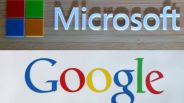The landscape of the war to rule in the consumers' home, beyond living rooms, is a little clearer now that Samsung announced it aims to acquire SmartThings for $200 million and as it reveals how the Korean tech giant hopes to establish itself in the Internet of Things.
SmartThings, a developer of home automation products, employs a hub that connects into a home's wireless network and relays commands to sensors via a smartphone. Smartphone users of SmartThings' products can control smart thermostats, lock or unlock doors, check in on home security feeds, receive alerts on internal motion and window movement, track down house keys and more.
Life under Samsung's wing will expose SmartThings's products and visions to a larger number of people and push forward the smart home revolution, says SmartThings co-founder and CEO Alex Hawkinson.
"From the beginning, our goal has been to make a platform every human being could use-and to make every home a smart home," said Hawkinson. "This will help us reach a massive scale. We saw an opportunity to bring SmartThing's vision to hundreds of millions of customers."
SmartThings' software is an open platform, which was one of the major factors that drew Samsung's attention. Samsung will try to keep its hands off of SmartThings' platform, as not to push developers away, according to Samsung Executive Vice President David Eun.
"While the company has been acquired by Samsung, being in the Open Innovation Center, the company will be kept at arms length away from Samsung," said Eun. "We want to people to understand how important it is that they will stay independent. SmartThings will continue to work with its developer community and business partners. In the meantime, we'll be exploring ways to partner with them."
The battle lines in the Internet of Things (IoT) are being drawn, with Apple expanding its closed ecosystem of products into more areas of consumer lives and Google turning to newly acquired Nest for connected products. Microsoft has joined the Allseen alliance with 60 other members-which includes power players such as LG, Haier and Qualcomm -- to bolster the group's open-source AllJoyn framework.
With the acquisition of SmartThings, Samsungs' place in the IoT is quickly being revealed.
"This idea of connected homes or smart homes is something Samsung has been thinking about for years," Eun said. "It became obvious to us [that] this idea of creating a really open platform and making it truly global was absolutely what the industry needed."
ⓒ 2025 TECHTIMES.com All rights reserved. Do not reproduce without permission.




